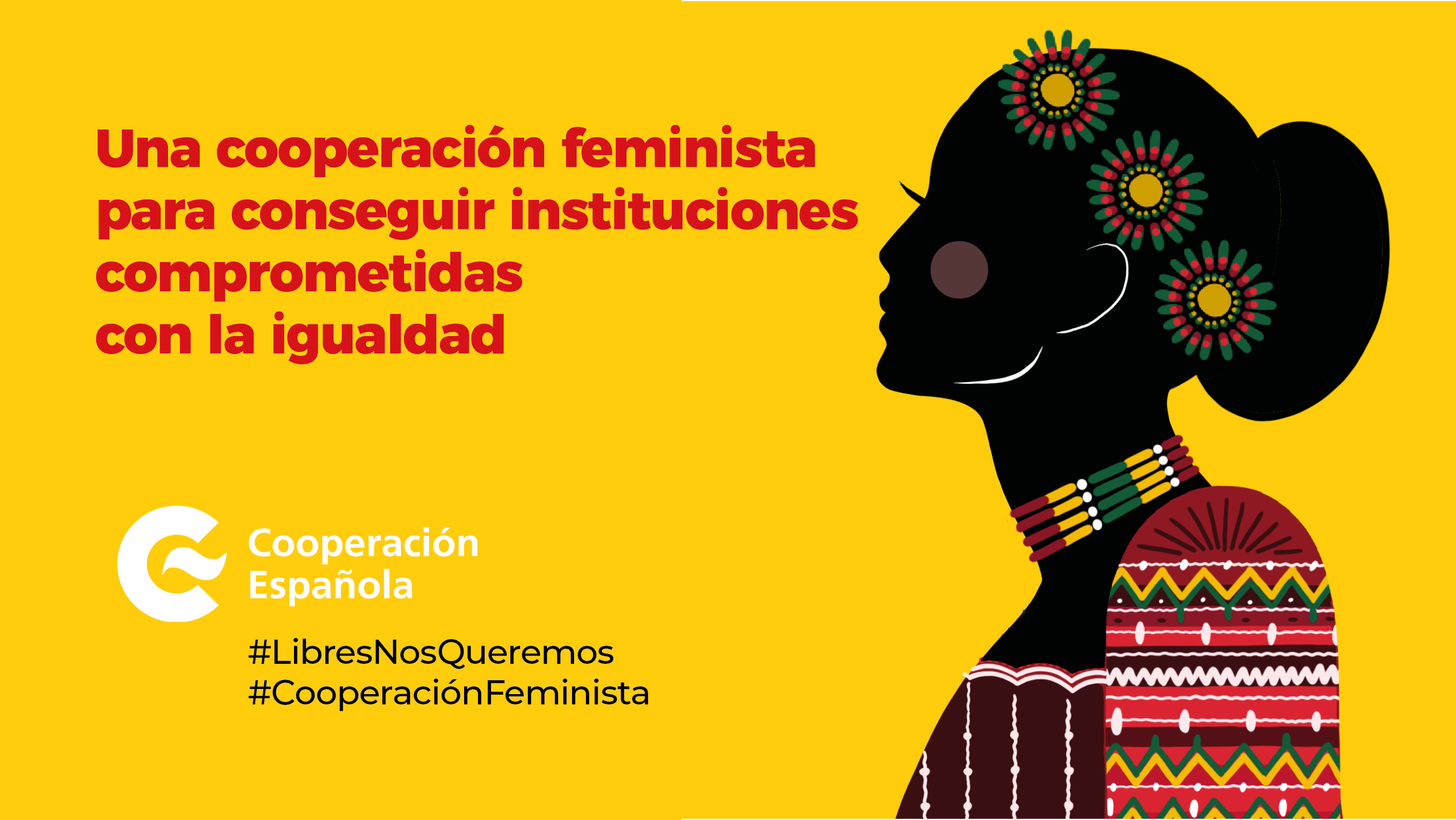-
22 November 2022
Category : Reportage
Feminist public policies to combat gender-based violence worldwide from the institutional level
The fight against gender-based violence is a commitment of Spanish foreign action, which is committed to feminist cooperation to combat gender-based violence outside our borders as well.

-
The fight against gender-based violence is a commitment of Spanish foreign action, which is committed to feminist cooperation to combat gender-based violence outside our borders as well.
-
FIIAPP, an entity of the Spanish Cooperation, materializes this commitment through the mobilization of public professionals of our institutions to support feminist public policies around the world that close the way to the abusers.
Police officers, judges, doctors and prosecutors are some of the professionals who are mobilized through FIIAPP to cooperate with their counterparts in other countries by contributing their experiences in Spanish institutions to combat gender violence.
Condemning abusers, raising awareness among adolescents, not re-victimizing women, prosecuting aggressors, prosecuting trafficking, ensuring the safety of threatened women, facilitating safe migratory routes, supporting feminist education… These are essential actions to combat gender violence that have one thing in common: they need public institutions to be carried out.
Through public cooperation – a type of cooperation that allows the mobilization of professionals from institutions – FIIAPP mobilizes specialists such as police officers, judges, doctors and prosecutors to work hand in hand with their counterparts in other countries. These exchanges facilitate dialogue and support for regulations, laws and public policies to curb violence against girls and women.
“Gender-based violence is a structural problem that requires cross-cutting approaches. Equality institutions, but also health, interior, justice and education institutions have the capacity to build public policies with a gender focus that protect women, but also focus on prevention and changing social structures,” explains Peggy Martinello, Director of Public Administration and Social Affairs.
Three examples of public cooperation against gender-based violence:
Security: Spanish police train Lebanese police officers against gender-based violence.
Specialists from the National Police work in Lebanon through a European FIIAPP program that provides support to the Lebanese police. The program includes a gender component with the participation of the National Police’s Family and Women Care Unit (UFAM). “With their support, we promote the creation of the Gender Violence Unit within the ISF (Lebanese Security Forces) with policemen trained in victim care and investigation of these types of crimes in the 12 territorial police stations in the country. We also want to ensure that there are female police officers to attend to victims, as currently there are only men, and we aspire to offer more comprehensive care to all victims, institutionalizing the provision of social, health, psychological and legal services to all victims” explains the program coordinator at the FIIAPP, Consuelo Navarro.
For the National Police and project leader, Joaquín Plasencia, the Spanish police officers working on the project not only contribute through training, “they are police commanders, and are a clear example that it is possible and necessary for women to occupy these positions, we must achieve together, setting an example of gender equality so that women can achieve their goals in a modern society such as the Lebanese one.
Justice: Latin American women protected from their abusers across the continent
Two experts from the Spanish Attorney General’s Office and COMJIB have been working for months with Latin American institutions to extend protection to victims of gender-based violence in Latin America. They have done so in the framework of PAcCTO, a European program to fight organized crime, through which the FIIAPP mobilizes Spanish public specialists who cooperate with their counterparts in Latin America.
The result of this joint work has been the approval of the Agreement on Protection Measures for Women in Situations of Gender Violence in Mercosur and Associated States. This milestone promotes the extension of protection for women victims of gender-based violence to any of the countries that have ratified this agreement. “We have worked with the PAcCTO to learn about local legislation on the protection of victims of violence and human trafficking in order to extend this protection not only in the country where the crime occurs but also in other Mercosur countries and Associated States,” explains the general coordinator of COMJIB, Tatiana Salem.
This agreement “helps to homogenize legislation in the region. It is also done with European support, which guarantees a certain capacity for transregional dialogue that should lead to systems that guarantee the protection of women in their countries, in their regions and beyond their regions,” says Mariano Guillén, director of Justice and Rule of Law at the FIIAPP.
Education: Anti-trafficking prevention for more than 500 girls in Nigerian schools
Nigeria is one of the main countries of origin of trafficking of women who are exploited in Europe. Police officers from our National Police Corps work there together with NGO’s and National Centers carrying out training and direct awareness-raising work for women and girls, the main potential victims of trafficking networks.
“The fight against human trafficking in Nigeria has taken on a positive dimension, the country has been placed at the forefront of the fight against human trafficking and irregular migration in Africa thanks to the support of European cooperation programs such as ATIPSOM, which remind us of the importance of putting our cooperation and development efforts into combating human trafficking,” explains Fatima Waziri-Azi, Director General of the National Agency for the Prohibition of Trafficking in Persons (NAPTIP).
The views and opinions expressed in this blog are the sole responsibility of the person who write them.
-




